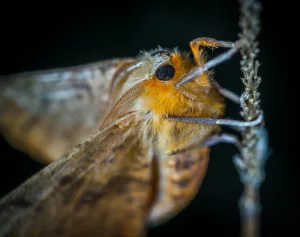Maintaining a thriving garden requires knowledge and skill. Avoiding common gardening mistakes is crucial to ensuring your plants reach their full potential. Below are 10 gardening mistakes to avoid if you want your plants to flourish:
Poor Soil Preparation
One of the most critical mistakes gardeners make is neglecting soil preparation. Good soil preparation is the foundation for healthy plant growth. Ensure your soil is well-draining, rich in nutrients, and has the right pH levels to support robust root development and overall plant health. Testing your soil and amending it as needed can make a significant difference in the success of your garden.
Tips for Improving Soil Quality
- Test Your Soil: Use a soil test kit to determine pH, nutrient levels, and texture. Understanding your soil’s current state will guide you in making necessary amendments.
- Amend with Organic Matter: Incorporate compost or well-rotted manure to improve soil structure and fertility. This not only adds nutrients but also enhances the soil’s ability to retain moisture and drain efficiently.
- Consider Soil Type: Sandy soils drain quickly but may lack nutrients, while clay soils retain water but can suffocate roots. Add organic matter to sandy soils and sand or gypsum to clay soils to improve their characteristics.
Case Study: Successful Soil Amendments
A local community garden in Portland, Oregon, faced issues with poor plant growth due to sandy soil. By systematically adding compost and conducting regular soil tests, the garden saw a marked improvement in plant vitality within a single growing season. This transformation underscores the power of targeted soil amendments.
Overwatering
Overwatering is a common mistake that can have detrimental effects on your plants. It can lead to root rot, fungal diseases, and poor oxygen uptake by the roots. To avoid overwatering, check the soil moisture level before watering your plants. Allow the top few inches of soil to dry out between watering sessions and ensure proper drainage to prevent waterlogged soil, which can suffocate the roots.
How to Avoid Overwatering
- Use a Moisture Meter: Invest in a simple moisture meter that can help you accurately determine when your plants need water.
- Set a Watering Schedule: Instead of watering on a strict schedule, observe your plants and adjust based on their needs and weather conditions.
- Improve Drainage: Ensure your garden beds and pots have good drainage holes. Consider raising beds or using well-draining potting mix for container plants.
Real-Life Example: The Consequences of Overwatering
In a suburban backyard in Texas, a homeowner observed wilting plants despite frequent watering. Upon consultation, it was discovered that the clay-heavy soil retained too much water, leading to root rot. Adjusting watering practices and improving drainage with sand and organic matter reversed plant decline within weeks.
Ignoring Planting Zones
Planting the wrong plants in the wrong locations can lead to stunted growth, poor health, and even plant death. Ignoring planting zones can result in plants struggling to adapt to their environment, leading to increased stress and vulnerability to pests and diseases. Research the ideal planting zones for each plant in your garden to ensure they receive the necessary conditions to thrive and reach their full potential.
Understanding Your Planting Zone
- Consult the USDA Hardiness Zone Map: This map helps you determine which plants are most likely to thrive in your region based on minimum winter temperatures.
- Consider Microclimates: Even within your garden, areas may vary in temperature, light exposure, and moisture. Identify these microclimates to better plan your planting.
Example: Adapting to Planting Zones
A gardener in Minnesota attempted to grow citrus trees, which are not suited to the local climate. By constructing a greenhouse and choosing cold-hardy varieties, they successfully extended the growing season and protected the plants from severe winter conditions.
Not Pruning Properly
Pruning plays a vital role in promoting healthy growth and flowering in plants. Improper pruning techniques can damage plants, reduce flowering, and disrupt their natural shape. It is essential to learn the correct pruning methods for each type of plant in your garden. Understand the best time to prune, the appropriate tools to use, and the specific pruning needs of different plant varieties to optimize their growth and appearance.
Best Practices for Pruning
- Know Your Plant: Research the specific pruning needs of your plants. Some, like roses, benefit from heavy pruning, while others, like lilacs, should be pruned sparingly.
- Use the Right Tools: Sharp, clean tools prevent damage and disease spread. Bypass pruners are ideal for most tasks, while loppers handle thicker branches.
- Timing Matters: Prune flowering shrubs immediately after they bloom to avoid cutting off next year’s buds. For fruit trees, late winter pruning encourages vigorous spring growth.
Case Study: Transformative Pruning
At a historic estate in Virginia, neglected rose bushes were rejuvenated through careful pruning. By removing dead wood and shaping the bushes, the gardeners restored their vigor, resulting in a spectacular bloom display the following season.
Using Incorrect Fertilizer
Choosing the wrong type or amount of fertilizer can harm your plants rather than benefit them. Different plants have varying nutritional requirements, and using the incorrect fertilizer can lead to nutrient imbalances, stunted growth, or even plant burn. Take the time to understand the specific needs of your plants and select fertilizers that provide the necessary nutrients in the right proportions. Consider organic options for a more sustainable approach to fertilizing your garden.
Fertilizer Tips
- Read Labels Carefully: Understand the N-P-K ratio (Nitrogen-Phosphorus-Potassium) and choose appropriate ratios for your plants’ growth stage.
- Avoid Over-Fertilization: Too much fertilizer can lead to nutrient runoff and plant damage. Follow recommended application rates and timings.
- Embrace Organic Options: Compost, bone meal, and fish emulsion are excellent organic fertilizers that enrich the soil without harmful chemicals.
Example: Fertilizer Missteps and Corrections
In a community allotment, tomatoes suffered from yellowing leaves due to excessive nitrogen fertilizer. Reducing nitrogen input and applying a balanced fertilizer corrected the nutrient imbalance, resulting in improved plant health and productivity.
Planting Too Close Together
Planting too closely together can result in overcrowding, competition for resources, and an increased risk of pest and disease infestations. Proper spacing between plants is essential to allow for adequate air circulation, sunlight exposure, and room for growth. Follow spacing guidelines provided on plant tags or seed packets to ensure each plant has sufficient space to develop healthy roots and foliage.
Tips for Optimal Plant Spacing
- Follow Package Instructions: Seed packets and plant tags offer precise spacing guidelines tailored to each species.
- Consider Mature Size: Plan for the mature size of plants, allowing enough room for full growth without competition.
- Thinning Seedlings: In crowded seed beds, thin seedlings as they grow to prevent overcrowding and ensure strong plant development.
A Garden Transformed: The Impact of Proper Spacing
A school garden project in New York faced issues with mildew and poor yields due to tightly packed vegetable plants. By replanting with proper spacing, the garden saw a decrease in disease incidence and a doubling of its vegetable harvest.
Ignoring Pest Control
Pest infestations can wreak havoc on your garden if left unchecked. Ignoring pest control measures can lead to extensive damage to your plants and compromise their overall health. Implementing integrated pest management strategies can help prevent, monitor, and manage pest populations effectively. This approach combines biological, cultural, and chemical control methods to target pests while minimizing environmental impact and preserving beneficial organisms in your garden.
Integrated Pest Management (IPM) Strategies
- Monitor Regularly: Check plants frequently for signs of pests to catch problems early.
- Encourage Beneficial Insects: Ladybugs and lacewings are natural predators of many common garden pests.
- Use Barriers and Traps: Physical barriers like row covers and traps can effectively control pests without chemicals.
- Apply Organic Pesticides: Neem oil and insecticidal soap are effective and environmentally friendly options for controlling many pests.
Case Example: Success with IPM
In a Florida vegetable garden, aphid infestations were successfully controlled by introducing ladybugs and using neem oil, resulting in a dramatic decrease in pest numbers and healthier plants without resorting to harsh chemicals.
Not Providing Adequate Sunlight
Adequate sunlight is essential for plant photosynthesis, growth, and flowering. Insufficient light exposure can lead to leggy growth, reduced blooming, and overall poor plant performance. Understand the sunlight requirements of each plant species in your garden and position them in locations where they can receive the appropriate amount of sunlight. Consider factors such as shade patterns, seasonal light changes, and the sun’s intensity to optimize light exposure for your plants.
Ensuring Sufficient Sunlight
- Map Your Garden’s Sun Patterns: Observe which areas receive full sun, partial sun, or shade throughout the day and across seasons.
- Choose Plants Wisely: Match plant sunlight requirements to their planting location. Sun-loving plants like tomatoes thrive in full sun, while ferns prefer shady spots.
- Use Reflective Surfaces: Position reflective materials like white stones or walls to enhance light availability for sun-sensitive plants.
Example: Overcoming Sunlight Challenges
A balcony gardener in Chicago faced limited sunlight due to surrounding buildings. By using reflective surfaces and positioning mirrors, the gardener successfully increased light exposure, allowing a variety of herbs and flowers to flourish.
Neglecting Regular Maintenance
Regular maintenance tasks are vital for the long-term health and vitality of your garden. Weeding, watering, and monitoring for pests and diseases are ongoing responsibilities that can impact plant growth and productivity. Neglecting these tasks can result in weed competition, water stress, and unchecked pest populations that can weaken plants and reduce their resilience. Stay vigilant with your garden maintenance routine to address issues promptly and promote a thriving garden environment.
Key Maintenance Practices
- Establish a Routine: Set aside time weekly for garden upkeep, including weeding, deadheading, and checking for pests.
- Mulch to Reduce Weeds: A layer of organic mulch suppresses weeds, retains moisture, and enriches the soil as it decomposes.
- Keep Tools Ready: Maintain and organize your gardening tools to ensure they are always ready for use, making regular maintenance more efficient.
Real-Life Impact of Consistent Maintenance
In a neighborhood community garden, regular mulching and weeding sessions led by volunteers resulted in a lush and productive space that attracted more community members and increased vegetable yields year after year.
Ignoring Climate Considerations
Climate plays a significant role in determining the success of your garden. Ignoring climate considerations can lead to plant stress, poor growth, and failure to thrive. Take into account factors such as temperature ranges, rainfall patterns, and seasonal variations when selecting plants for your garden. Choose plant varieties that are well-adapted to your local climate conditions to ensure they can withstand the environmental challenges they may encounter. Consider microclimates within your garden space and adjust planting locations accordingly to create optimal growing conditions for your plants.
Adapting to Climate Conditions
- Select Climate-Appropriate Plants: Opt for native plants or those adapted to your region’s specific climate to ensure better survival and growth.
- Plan for Extremes: Use shade cloths, windbreaks, or protective covers to shield plants during extreme weather events.
- Water Wisely: Install rain barrels to collect and store rainwater for use during dry periods, ensuring your garden remains hydrated without relying solely on municipal water supplies.
Example: Thriving in Challenging Climates
In the desert landscape of Arizona, a gardener successfully cultivated a vibrant garden by choosing drought-tolerant plants, installing a drip irrigation system, and using shade structures to protect plants from the intense sun.
By expanding your gardening knowledge and avoiding these common mistakes, you can cultivate a garden that not only survives but thrives, bringing beauty and bounty to your outdoor space. Happy gardening!



